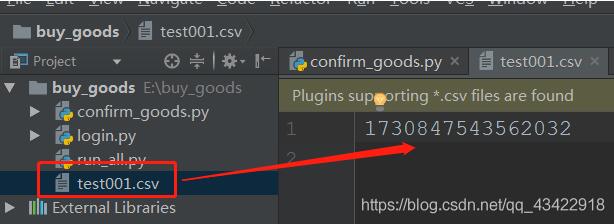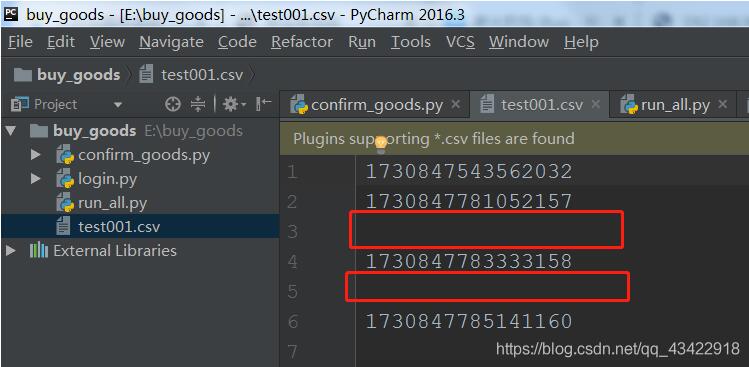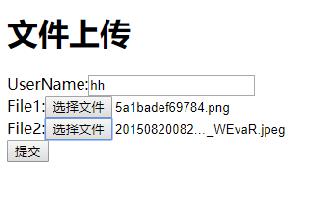python 編寫輸出到csv的操作
def test_write(self): fields=[] fields.append(orderCode) with open(r’./test001.csv’, ’a’,newline='') as f: writer = csv.writer(f) writer.writerow(fields)

定義一個列表:然后將需要寫的數據添加到列表
a #追加數據到下一行
newline=’’ //去除每一行中間的空行,若不加的話,行與行中間有空格
加newline

不加:


補充:利用python將json數據轉換為csv格式
假設.json文件中存儲的數據為:
{'type': 'Point', 'link': 'http://www.dianping.com/newhotel/22416995', 'coordinates': [116.37256372996957, 40.39798447055443], 'category': '經濟型', 'name': '北京荷塘山莊', 'count': '278', 'address': '北京市懷柔區黃花城村安四路', 'price': '380'}{'type': 'Point', 'link': 'http://www.dianping.com/newhotel/19717653', 'coordinates': [116.56881588256466, 40.43310967948417], 'category': '經濟型', 'name': '慕田峪長城魚師傅鄉村酒店', 'count': '89', 'address': '北京市懷柔區渤海鎮葦店村(慕田峪長城下3公里處,近懷黃路)', 'price': '258'}{'type': 'Point', 'link': 'http://www.dianping.com/newhotel/58365289', 'coordinates': [116.62874974822378, 40.45610264855833], 'category': '經濟型', 'name': '北京蜜桃兒親子客棧', 'count': '119', 'address': '北京市懷柔區神堂峪風景區下官地11號', 'price': '549'}
現在需要將上面的這些數據存為csv格式,其中字典的keys為csv中的屬性名稱,字典的values為csv中屬性對應的值。
如果只需要按照json的keys來生成csv,那么操作比較簡單,直接按照下面的方法即可:
#-*-coding:utf-8-*-import csvimport jsonimport sysimport codecsdef trans(path): jsonData = codecs.open(path+’.json’, ’r’, ’utf-8’) # csvfile = open(path+’.csv’, ’w’) # 此處這樣寫會導致寫出來的文件會有空行 # csvfile = open(path+’.csv’, ’wb’) # python2下 csvfile = open(path+’.csv’, ’w’, newline=’’) # python3下 writer = csv.writer(csvfile, delimiter=’t’, quoting=csv.QUOTE_ALL) flag = True for line in jsonData: dic = json.loads(line[0:-1]) if flag: # 獲取屬性列表 keys = list(dic.keys()) print (keys) writer.writerow(keys) # 將屬性列表寫入csv中 flag = False # 讀取json數據的每一行,將values數據一次一行的寫入csv中 writer.writerow(list(dic.values())) jsonData.close() csvfile.close()if __name__ == ’__main__’: path=str(sys.argv[1]) # 獲取path參數 print (path) trans(path)
在python3下運行,命令行輸入
python C:UsersMaMQDocumentsjsonToCsv.py C:UsersMaMQDocumentsdatageoFood
其中第三個參數為需要轉換的文件的路徑和其名稱,將其后綴刪除。運行文件后即可得到轉換后的csv文件。
如果需要對json文件中每個字典的key字段進行修改,比如需要將上面dict中的coordinate中的經緯度數據取出來存為x、y數據,則可以按照下面的方法(此方法還可以調整每個屬性顯示的順序,效果更好一點):
import csvimport jsonimport sysimport codecsdef trans(path): jsonData = codecs.open(path+’.json’, ’r’, ’utf-8’) # csvfile = open(path+’.csv’, ’w’) # 此處這樣寫會導致寫出來的文件會有空行 # csvfile = open(path+’.csv’, ’wb’) # python2下 csvfile = open(path+’.csv’, ’w’, newline=’’) # python3下 writer = csv.writer(csvfile, delimiter=’t’, quoting=csv.QUOTE_ALL) keys=[’id’, ’name’, ’category’, ’price’, ’count’, ’type’, ’address’, ’link’, ’x’, ’y’] writer.writerow(keys) i = 1 for dic in jsonData: dic = json.loads(dic[0:-1]) x = dic[’coordinates’][0] y = dic[’coordinates’][1] writer.writerow([str(i),dic[’name’],dic[’category’],dic[’price’],dic[’count’],dic[’type’],dic[’address’],dic[’link’],x,y]) i += 1 jsonData.close() csvfile.close()if __name__ == ’__main__’: path = str(sys.argv[1]) print (path) trans(path)
運行方法同上。
json文件是我在大眾點評抓取的數據,存儲格式為utf-8。建議使用codecs包來讀取json數據,可指定編碼方式。
jsonData = codecs.open(path + ’.json’, ’r’, encoding=’utf-8’)
以上為個人經驗,希望能給大家一個參考,也希望大家多多支持好吧啦網。如有錯誤或未考慮完全的地方,望不吝賜教。
相關文章:

 網公網安備
網公網安備